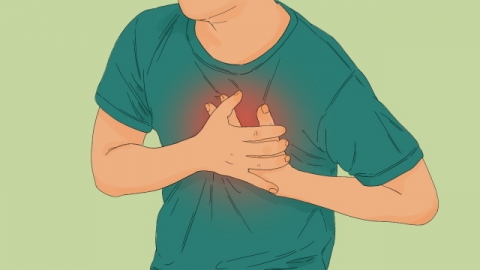What medicine is good for heartburn?
Under normal circumstances, heartburn may be caused by improper diet, excessive mental stress, gastroesophageal reflux disease (GERD), gastritis, gastric ulcers, and other factors. It is recommended to seek timely medical consultation and, under a physician's guidance, use medications such as esomeprazole magnesium enteric-coated tablets, rabeprazole sodium enteric-coated tablets, amoxicillin capsules, clarithromycin tablets, and hydrotalcid chewable tablets for treatment. Detailed explanations are as follows:

1. Improper Diet
Consuming excessive amounts of spicy, greasy, or acidic foods in one sitting, or drinking large quantities of alcohol, coffee, or strong tea can stimulate increased gastric acid secretion. When excessive gastric acid is produced, it may reflux into the esophagus, irritating the esophageal mucosa and causing a sensation of heartburn. Usually, medication is not required. It is recommended to adjust dietary habits, avoid irritant foods, and eat smaller, more frequent meals.
2. Excessive Mental Stress
Prolonged states of mental tension, anxiety, or depression may affect the nervous system's regulation of the gastrointestinal tract, potentially leading to dysregulation of gastric acid secretion and reduced lower esophageal sphincter tension, allowing gastric acid to more easily reflux into the esophagus and cause heartburn. Generally, medication is not necessary. It is recommended to learn emotional regulation techniques and relieve stress through activities such as exercise or listening to music.
3. Gastroesophageal Reflux Disease (GERD)
GERD may be caused by dysfunction of the lower esophageal sphincter, reduced esophageal clearance ability, or weakened esophageal mucosal barrier function. These factors may lead to reflux of gastric contents into the esophagus, where gastric acid irritates the esophageal mucosa and causes heartburn. It may also be accompanied by symptoms such as chest pain and difficulty swallowing. Under medical guidance, medications such as esomeprazole magnesium enteric-coated tablets, rabeprazole sodium enteric-coated tablets, and itopride hydrochloride dispersible tablets may be used for treatment.
4. Gastritis
Gastritis is usually caused by Helicobacter pylori infection, drug-induced irritation, alcohol consumption, or autoimmune reactions. Inflammation may lead to dysregulation of gastric acid secretion and damage to the protective gastric mucosal barrier, allowing gastric acid to more easily irritate the stomach and esophagus, resulting in heartburn. Symptoms such as abdominal distension and nausea may also occur. Patients may take medications such as amoxicillin capsules, clarithromycin tablets, and colloidal bismuth pectin capsules as directed by a physician.
5. Gastric Ulcer
Gastric ulcers may be associated with Helicobacter pylori infection, excessive gastric acid secretion, or weakened gastric mucosal defense mechanisms. Patients have damaged gastric mucosa, and gastric acid directly irritating the ulcer site can not only cause stomach pain but also lead to acid reflux and heartburn. Symptoms such as belching and vomiting may also occur. Patients may take medications such as hydrotalcid chewable tablets, rebamipide tablets, and teprenone capsules as advised by their physician.
In daily life, maintaining regular eating habits, avoiding overeating and irritant foods, getting adequate rest, and ensuring sufficient sleep are beneficial for maintaining good overall health.








